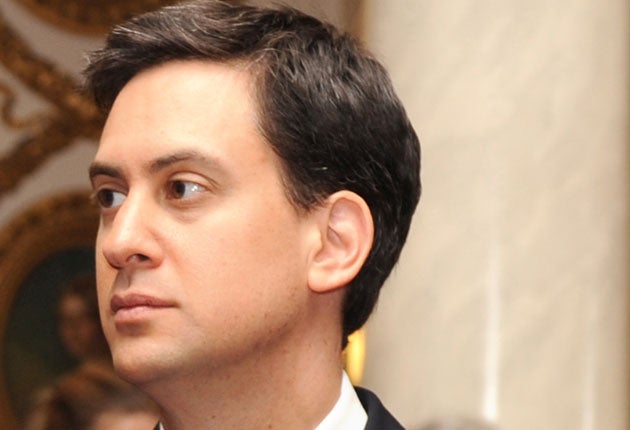Andrew Grice: An autumn of discontent suits neither side in pensions battle
Inside Westminster

Your support helps us to tell the story
From reproductive rights to climate change to Big Tech, The Independent is on the ground when the story is developing. Whether it's investigating the financials of Elon Musk's pro-Trump PAC or producing our latest documentary, 'The A Word', which shines a light on the American women fighting for reproductive rights, we know how important it is to parse out the facts from the messaging.
At such a critical moment in US history, we need reporters on the ground. Your donation allows us to keep sending journalists to speak to both sides of the story.
The Independent is trusted by Americans across the entire political spectrum. And unlike many other quality news outlets, we choose not to lock Americans out of our reporting and analysis with paywalls. We believe quality journalism should be available to everyone, paid for by those who can afford it.
Your support makes all the difference.The trade unions are back.
After years in the wilderness, they are all over the television news bulletins and front pages.
Some union leaders revel in the attention. They may not have the industrial muscle they enjoyed in the 1970s and 1980s. But Thursday's strikes by teachers, lecturers and civil servants over plans to cut public sector pensions, provoked tensions in both the Cabinet and Shadow Cabinet.
Francis Maude and Oliver Letwin, the Cabinet Office ministers, argued against a propaganda campaign attacking the unions, warning it could harm negotiations with them on pensions. "We can get a deal," they told the Cabinet.
Several Cabinet ministers wanted a tougher line, fearing that the unions might win the crucial battle for public opinion if the Government kept silent. They prevailed after arguing with the help of David Cameron's favourite metaphor: "We need to roll the pitch." As if by magic, stories appeared in Tory-supporting newspapers about the cost of public sector pensions, the salaries and pension pots of union leaders and the cost of union officials on the public payroll.
Ed Miliband was wary about being on the wrong side of public opinion – and aware that the Tories and their press allies would again paint him as "Red Ed" unless he opposed the action. He believed the strikes were premature – a view shared privately by some union leaders – and that it was common sense to call for both sides to return to the negotiating table. Not everyone agreed and normally loyal Shadow Cabinet allies, including Peter Hain and Sadiq Khan, had to be ordered into line.
On the face of it, the Government has made a strategic error by uniting the public sector unions. They were never going to take co-ordinated strike action over the two-year wage freeze or job cuts. But on pensions, the unions are all it together; their members understandably feel strongly.
Equally, ministers could hardly ignore public sector pensions when tackling the deficit is their top priority. George Osborne is adamant that the Government achieves eventual savings of £2.8bn a year. The U-turns on health and sentencing will not cost vast amounts but the public sector pensions involve big money, so there can be no surrender.
Having united the unions, the Government must now try to divide them. That will be its approach when negotiations resume on Wednesday. Local government workers could hold the key. Ministers have already shown flexibility amid fears that workers could pull out of the councils' pension scheme, causing its collapse. A settlement here might deter big unions such as Unite, Unison and the GMB from joining the co-ordinated strikes some unions seek in the autumn.
Despite the rhetoric from both sides, ministers and TUC leaders believe a deal is still possible. One senior union official said: "There is no appetite for an autumn of discontent. The key question is what the Government does next."
Most unions are likely to accept a switch from pensions based on final salary to career average earnings and people working longer until they draw their pensions. Uprating pensions in line with the consumer prices index, rather than the faster-rising retail prices index, will probably be swallowed too.
The sticking point is the Government's desire to see a 3 per cent rise in pension contributions. But there is room for compromise. Ministers have already promised no increase in pension payments for workers earning less than £15,000 a year. They are prepared to move further, perhaps through higher contributions by higher earners and phasing in changes, as long as the overall savings are still achieved on schedule.
Opinion polls suggest sympathy for public sector workers' attempts to defend their pensions, but not support for strikes which inconvenience the public. Both sides want to look reasonable. Mr Cameron does not share the craving of right-wing Tories for a symbolic Thatcher-style victory over the unions; the country has moved on. Similarly, sensible union leaders talk of "smart" industrial action but admit that closing schools does not look smart to many parents.
There is scope for a deal if both the Government and unions give ground. That should happen, in order to avoid a pitched battle that neither side nor the public wants.
Join our commenting forum
Join thought-provoking conversations, follow other Independent readers and see their replies
Comments